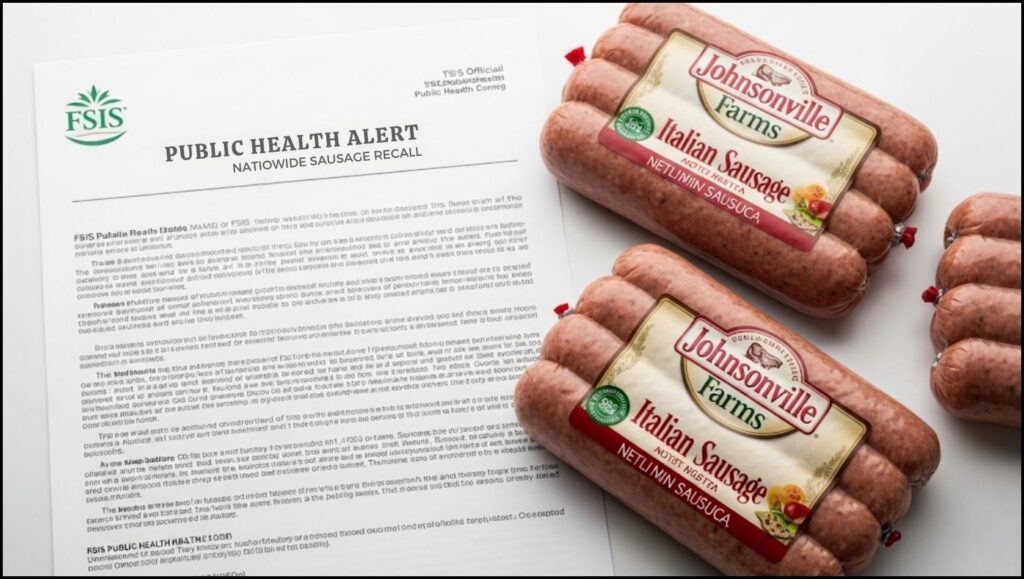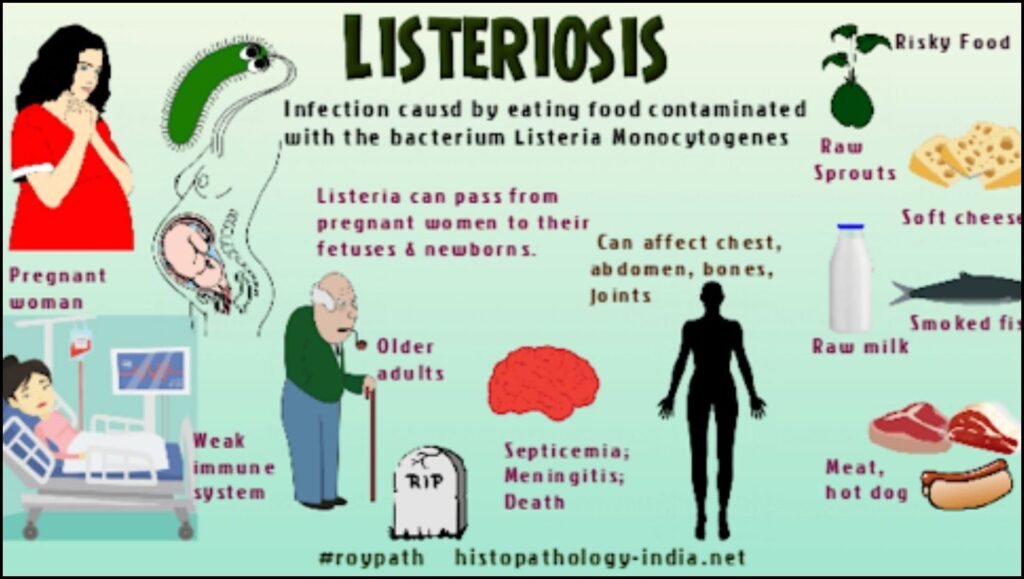Federal health officials have issued a high-level public health alert for a nationwide sausage recall involving more than 2.4 million pounds of ready-to-eat sausage products due to potential contamination with Listeria monocytogenes. The recall, initiated by the major food producer Johnsonville Farms, has been classified as a Class I recall, the most serious type, by the U.S. Department of Agriculture’s Food Safety and Inspection Service (FSIS).

Key Facts of the Recall
| Key Fact | Detail |
| Product Recalled | Johnsonville Farms Italian Mild and Hot Sausage (14 oz. and 28 oz. packages) |
| Reason for Recall | Potential contamination with Listeria monocytogenes bacteria. |
| Health Risk | Class I: A health hazard situation with a reasonable probability of serious, adverse health consequences or death. |
| Consumer Action | Do not consume. Throw away the product or return it to the place of purchase for a full refund. |
Details of the Nationwide Sausage Recall
The FSIS announced the sweeping sausage recall late Friday after routine product sampling detected the presence of Listeria monocytogenes. The recall affects specific lots of “Johnsonville Farms Italian Mild Sausage” and “Johnsonville Farms Hot Italian Sausage” produced between June 15, 2025, and July 10, 2025.
The products subject to recall bear the establishment number “EST. 4812” inside the USDA mark of inspection. They were shipped to distribution centers and retail locations across the United States. A full list of the affected product codes and “Best By” dates can be found on the FSIS website.
In a statement, Johnsonville Farms said it was “working diligently with the USDA to execute this voluntary recall and ensure the contaminated product is removed from commerce.” The company has halted production at the implicated facility pending a full investigation into the source of the contamination.
The Health Risks of Listeria Contamination
The recall was elevated to a Class I alert due to the serious health threat posed by Listeria monocytogenes. Listeriosis, the infection caused by the bacterium, can be severe, particularly for certain vulnerable populations.
According to the Centers for Disease Control and Prevention (CDC), symptoms can include fever, muscle aches, headache, stiff neck, confusion, loss of balance, and convulsions. Pregnant women are especially at risk, as listeriosis can lead to miscarriage, stillbirth, premature delivery, or life-threatening infection of the newborn.
“While healthy individuals may suffer only short-term symptoms like high fever and severe headache, listeriosis can be fatal for older adults, individuals with weakened immune systems, and newborns,” said Dr. Anya Sharma, an infectious disease specialist at the Johns Hopkins Center for Health Security. “This is why any Listeria contamination in ready-to-eat foods triggers such a robust public health response.”
The CDC is currently investigating a small, multi-state outbreak of listeriosis that may be linked to the recalled products, though a definitive connection has not yet been established.

How Consumers Should Respond to the Food Safety Alert
Officials are urging consumers to check their refrigerators and freezers for the recalled sausage. The FSIS advises that the products should not be consumed under any circumstances.
Recommended Actions:
- Check Products: Look for the brand, product name, and “EST. 4812” number on any sausage packages you own.
- Do Not Eat: If the product matches the recall notice, do not eat it.
- Dispose or Return: Securely wrap the product in a plastic bag and throw it in the trash, or return it to the store where it was purchased for a full refund.
“We urge anyone who has purchased these specific sausage products to heed this food safety alert immediately,” the FSIS stated in its public notification. “Listeria can survive and even grow under refrigeration, so simply having it in your home poses a risk of cross-contamination to other foods and surfaces.”
Expert Analysis: Preventing Contamination in the Food Supply
Food safety experts note that while the U.S. food supply is among the safest in the world, contamination events like this one are a reminder of the constant vigilance required. Listeria is a hardy bacterium that can be found in soil, water, and some animals. It can be introduced into a food processing facility and spread to equipment and surfaces.
“Contamination can occur at multiple points, from raw material handling to post-processing packaging,” explained Dr. David Chen, a professor of food science at Cornell University. “A robust FSIS recall and response system is our most critical tool for protecting the public when prevention measures fail. This recall demonstrates that the system is working as intended to identify and remove a threat quickly.”
The investigation into the root cause of the contamination at the Johnsonville Farms facility is ongoing. The company has stated it is implementing enhanced sanitation protocols and will conduct a comprehensive review of its food safety procedures in collaboration with independent experts and federal regulators.
SunMeadow Farms Issues Urgent Yogurt Recall Over Choking Hazard in Children’s Product
